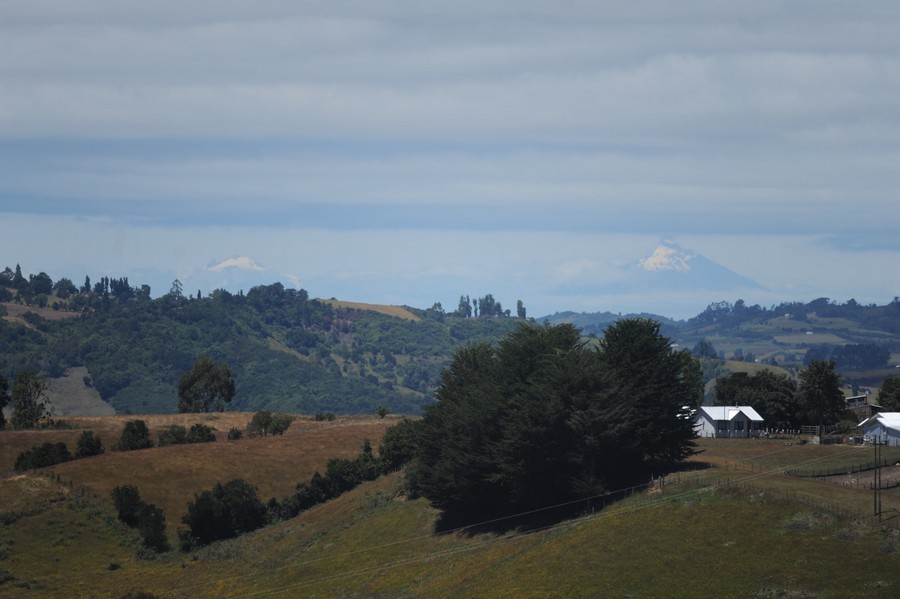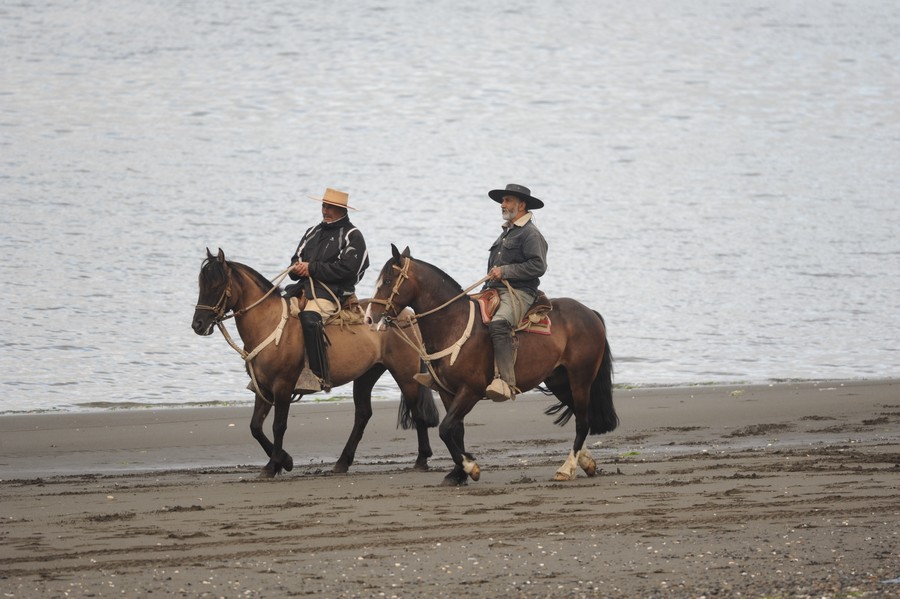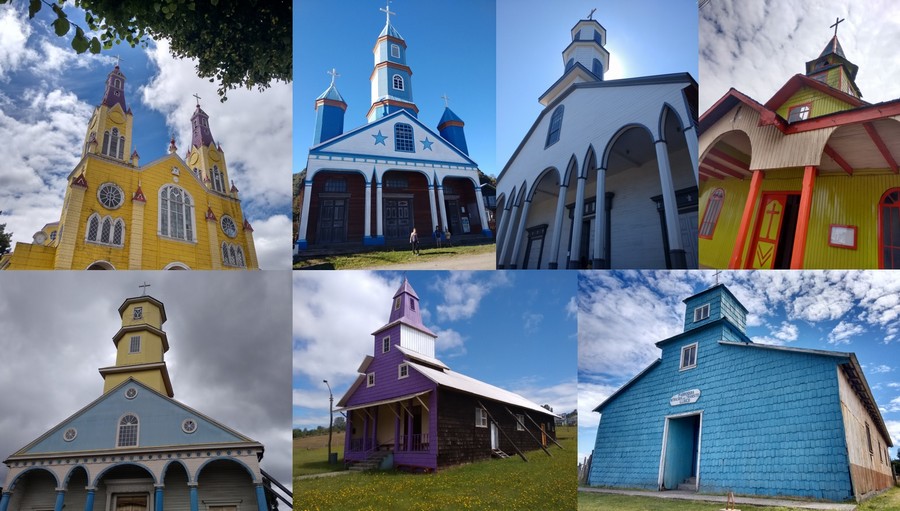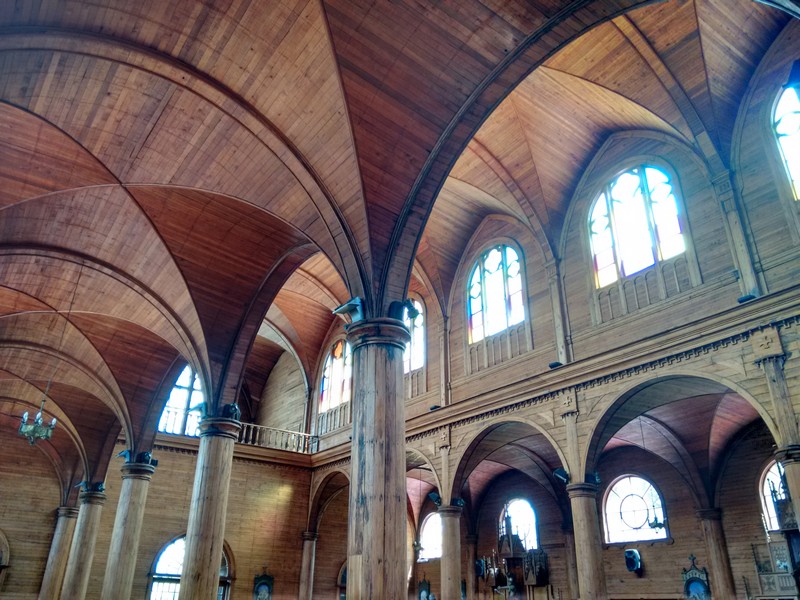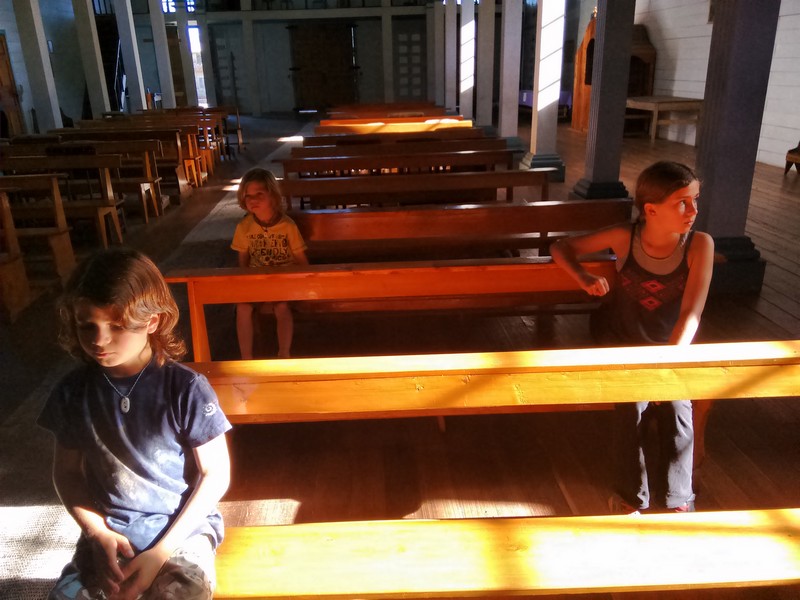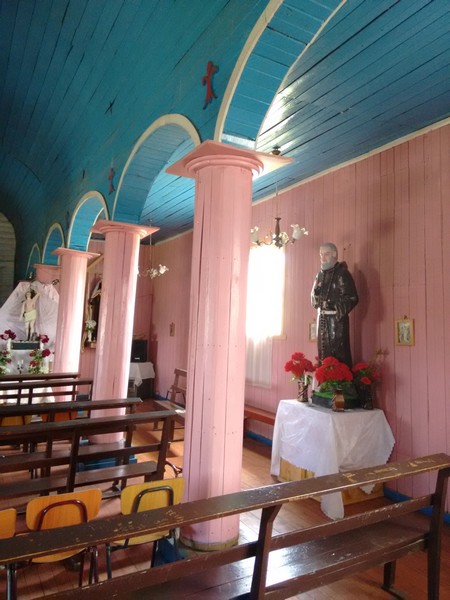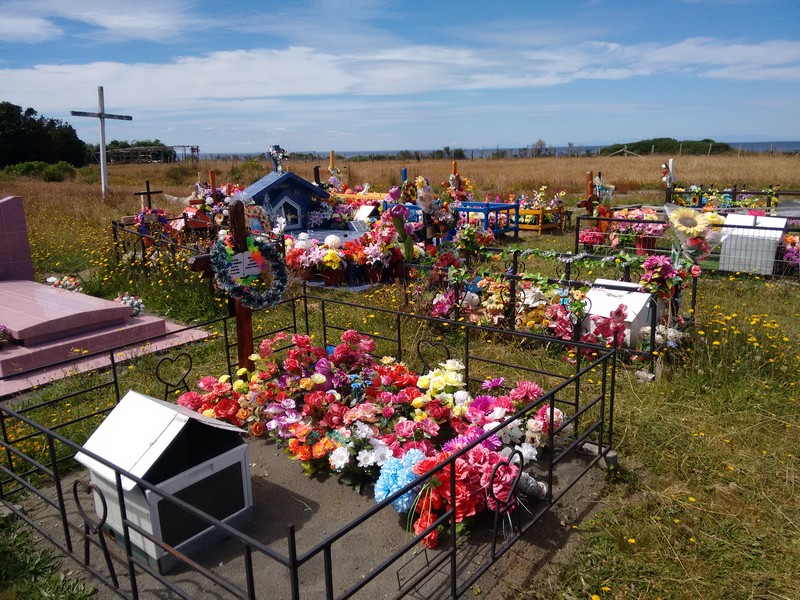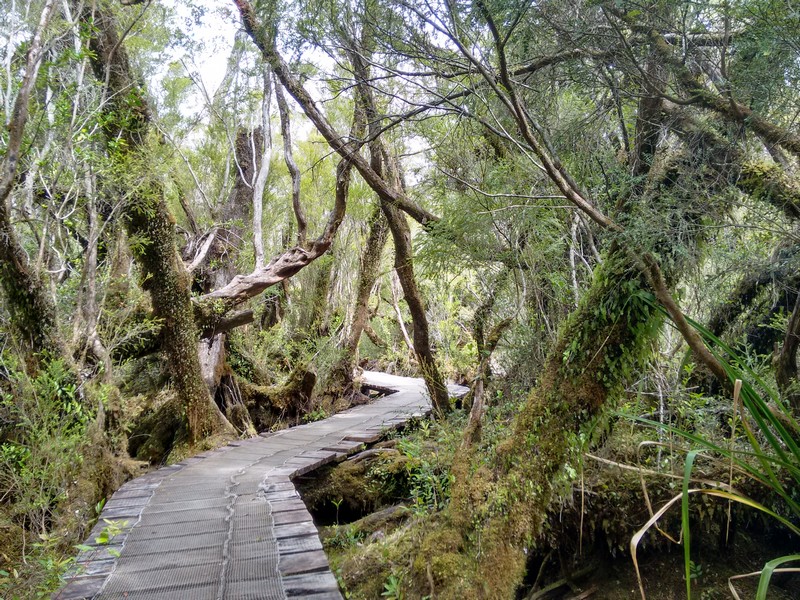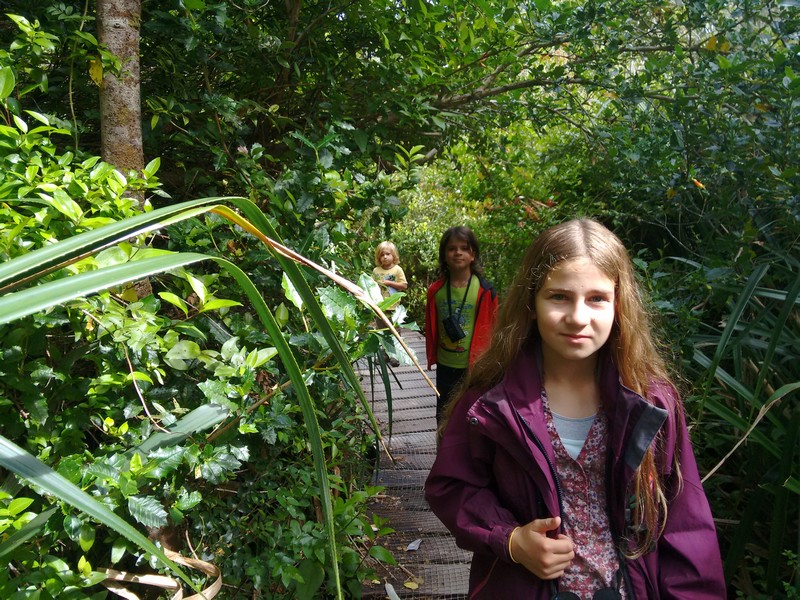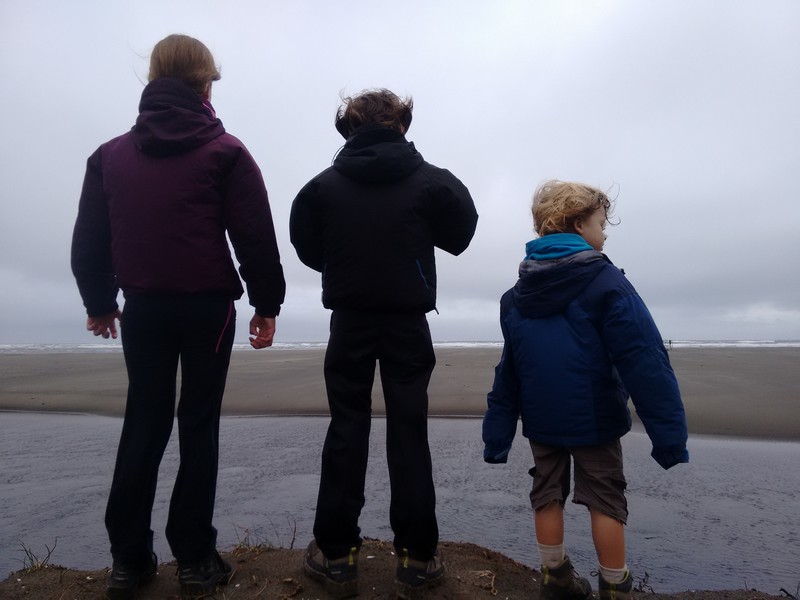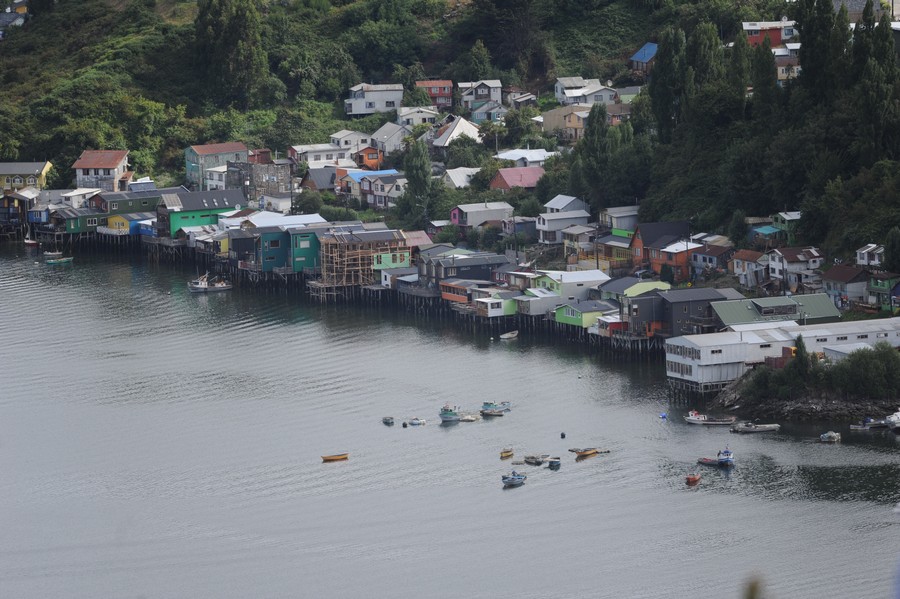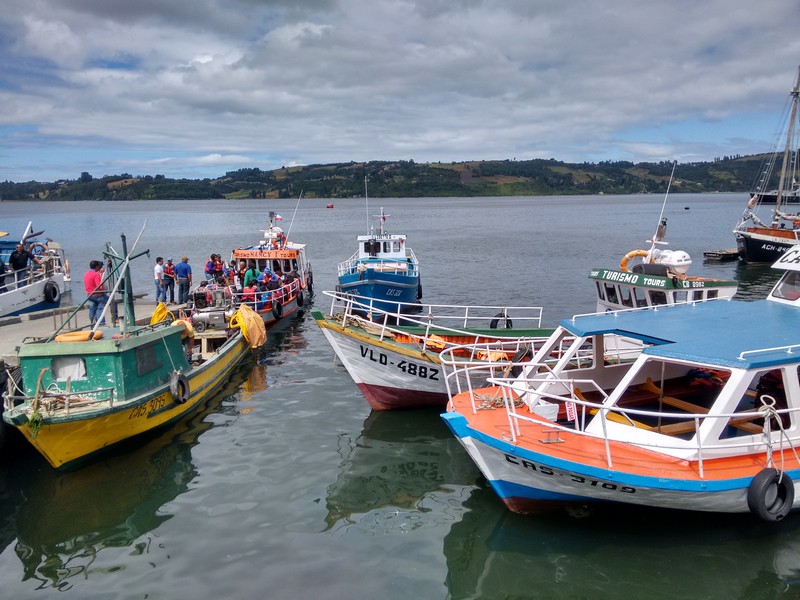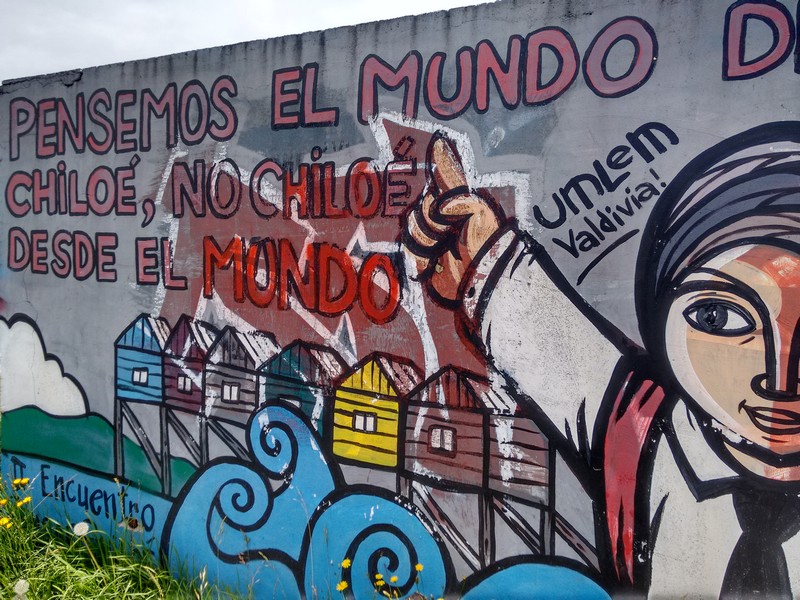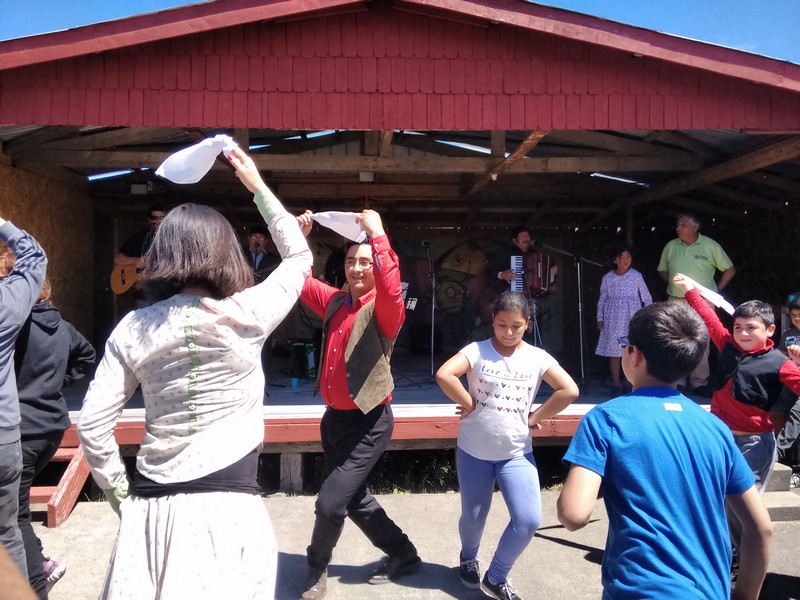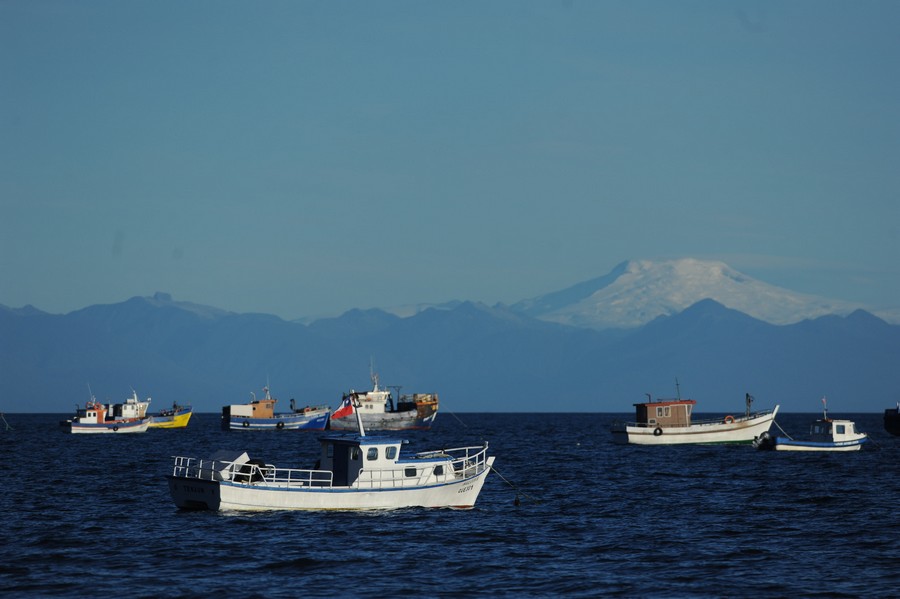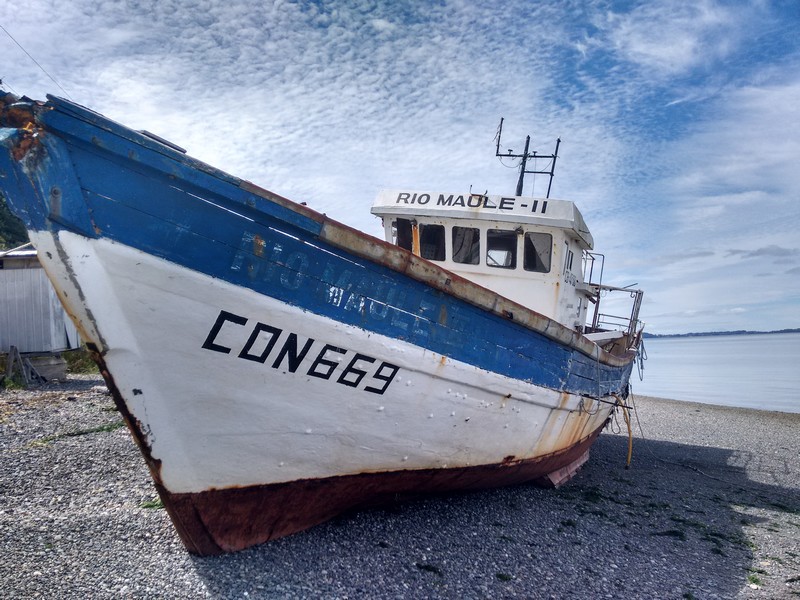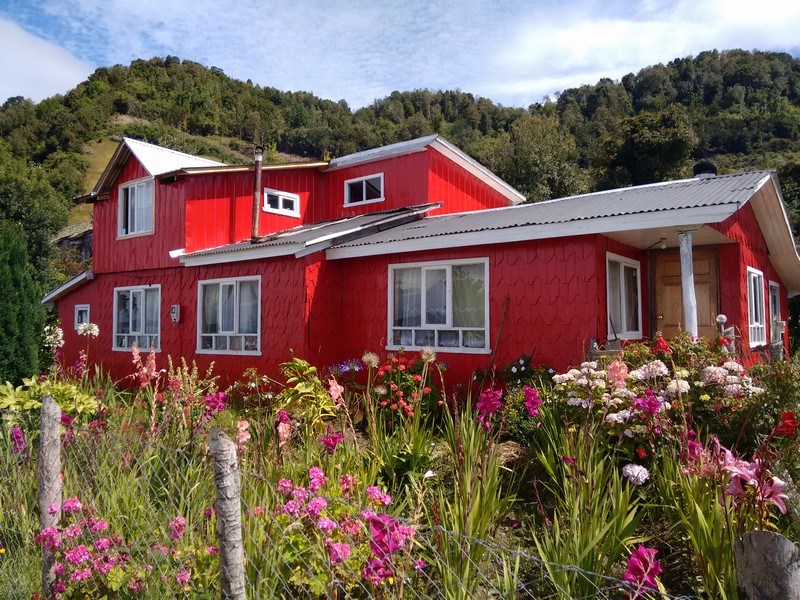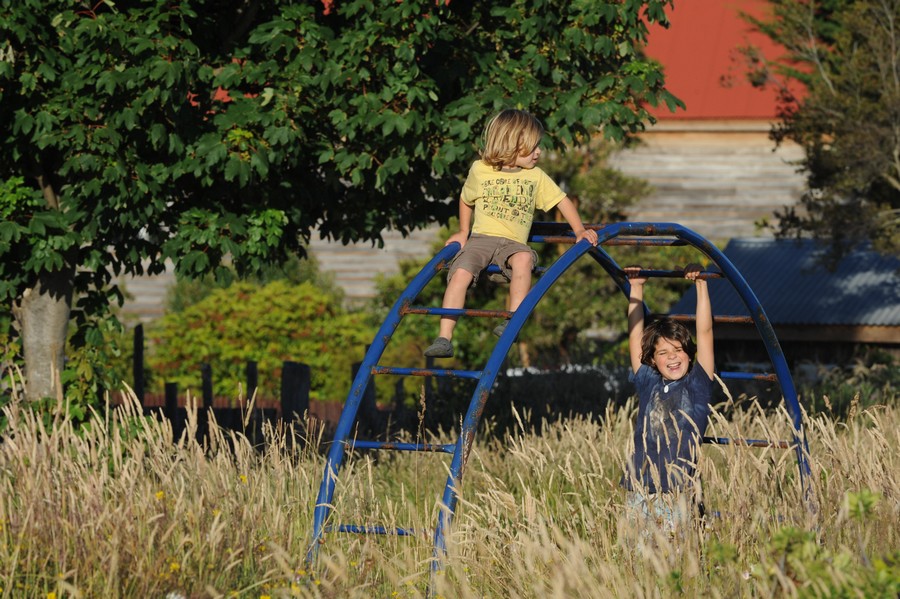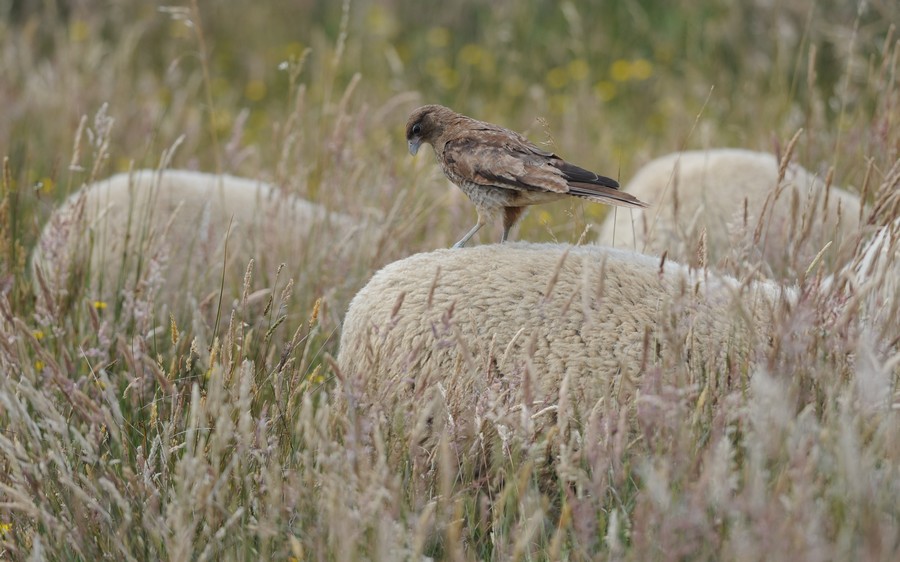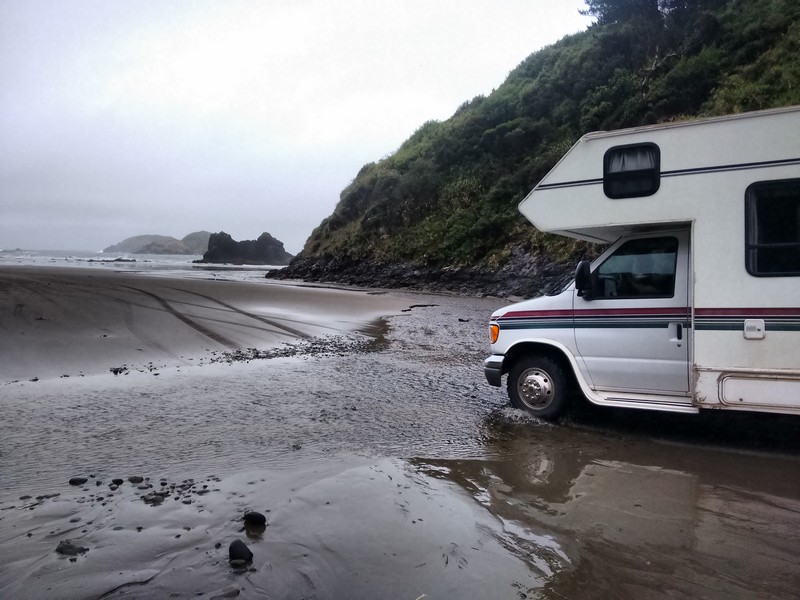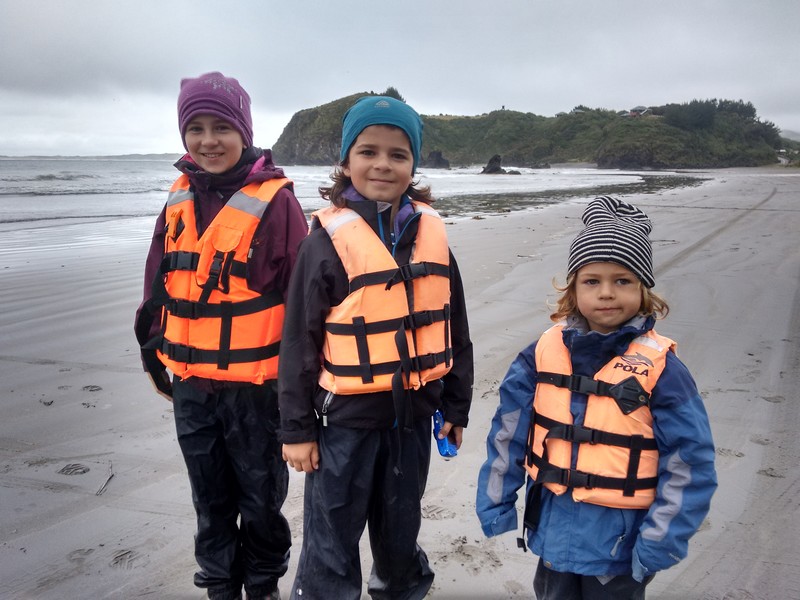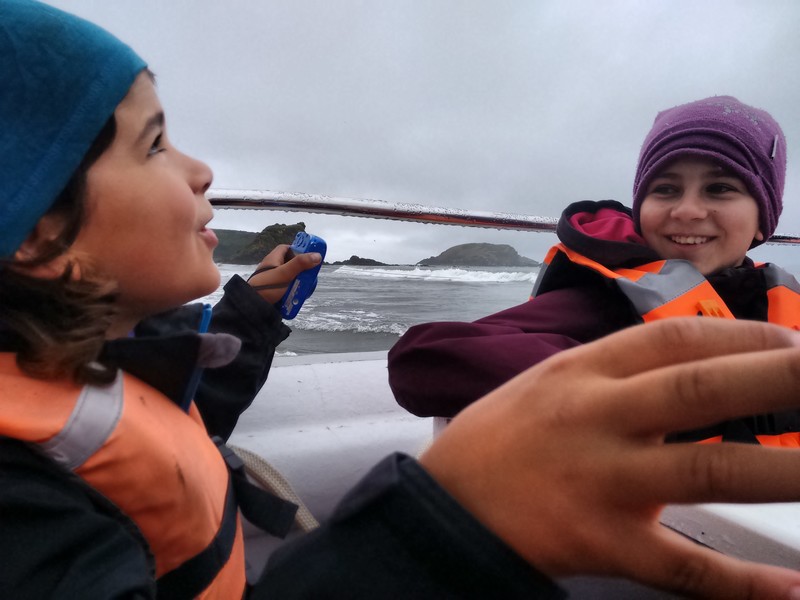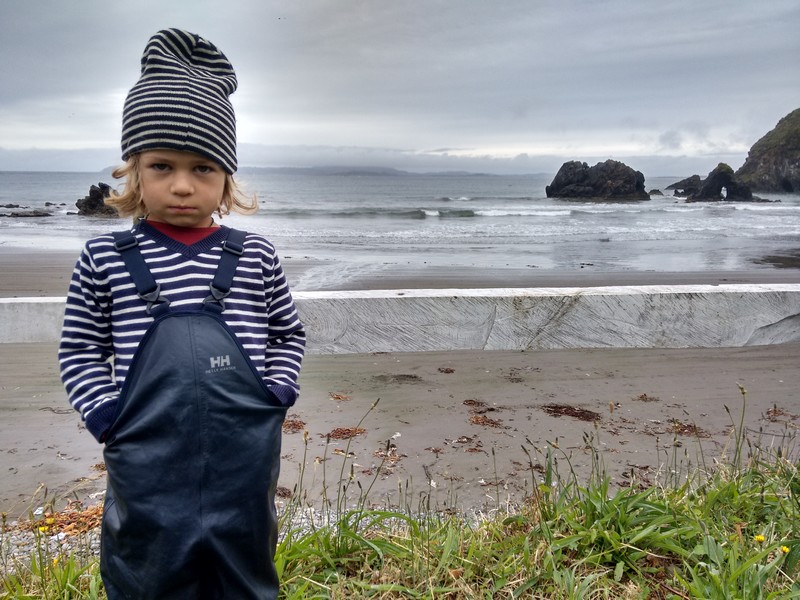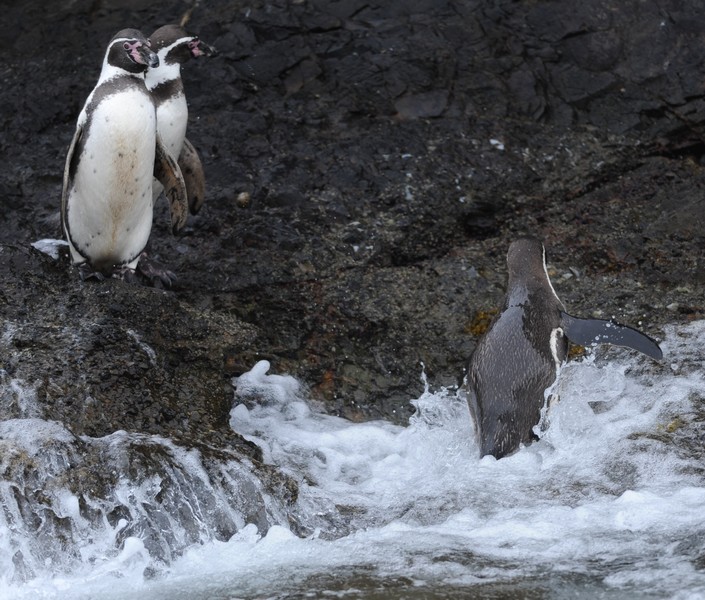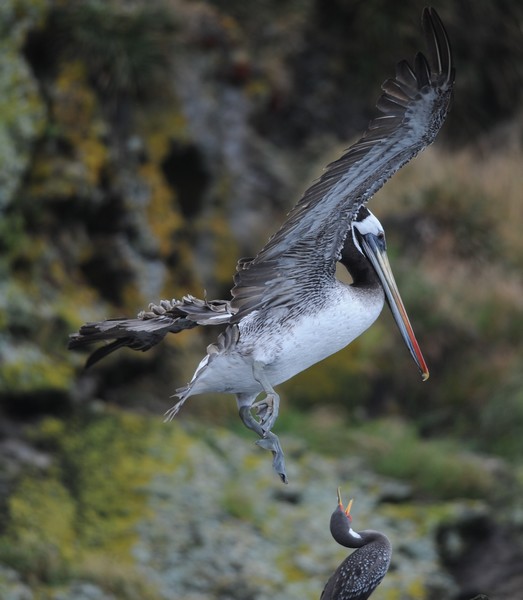Charming Chiloe
10 January: Another boat crossing, this time on a perfectly still sea, brings us from Chaiten to Quellon, on the Isla Grande de Chiloe. Some birds and dolphins on the way, interrupting the schoolwork that we try to get done!
We didn’t really know what to expect from Chiloe but, after a mitigated start, we ended up being really charmed by the island. Here the landscape is very hilly, with, on clear days, nice views of the mainland and its impressive volcanoes. Here the traditional beret worn by patagonian gauchos has been replaced by a sombrero worn by those beautifully dressed chilotes (inhabitants of Chiloe).
Here the churches are omnipresent and original, with their imaginative towers, inspiring wooden interiors and very colourful cemeteries. Many of them have been recognized by UNESCO as World Heritage Sites and they are definitely worth one (or more!) visits.
After a night in Quellon, we head straight to the Chiloe National Parc, on the west coast of the island. A tiny parc compared to those we have visited on the mainland but some very unique atmospheres with dense Tepual forests (of Tepu, a native Chilean tree) and huge beaches on the raging Pacific.
After two days in the park, we drive back to the east coast to explore the beautiful fishing villages and bustling capital, Castro. In addition to its monumental church, Castro impresses us with its palafitos (wooden houses built on stilts over the water), animated harbor and creative murals. In the small villages of Chonchi or Dalcahue, the time seems endless and we hang around from handicraft markets to more churches or cultural centers.
14 January: a nice stop at the traditional fiesta in Pid Pid (“Fiesta de la galina”, literally “fiesta of the chickens”)!), a small community north of Castro. Traditional dances and music, good food and an insight into the rural life of the island before driving further to Tenaun, an incredibly charming fishing village where we will spend the night.
Fishing boats in Tenaun, with view on the Michimahuida volcano, on the mainland. We were actually very close to this volcano in Chaiten but never got to see it because of the rainy weather. Happy to finally have a chance to admire it, even from a distance!
In Tenaun, people seem to exploit every possible resource from the sea through fishing, collecting and drying algae (further sent to Japan to make cosmetics), gathering shellfish at low tide, etc. A dream life!?!
16 January: our last day on the island. We spend it in the small village of Punihuil, accessed through a drive on the beach.
We bring our little marineros on a boat tour to see the Humboldt penguins, an endangered species that breeds on the coasts of Chile and Peru. The tour is expeditious but Sebastien manages to get a few pictures of the penguins, Peruvian pelicans and red-legged cormorants. We end the day by a gargantuan curanto, a typical and delicious dish from the island made of shellfish and meat. Time to go back to the mainland tomorrow…


